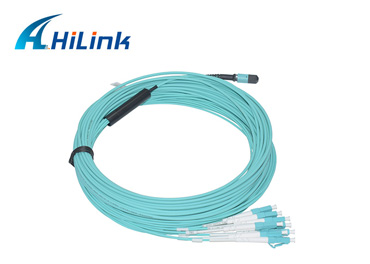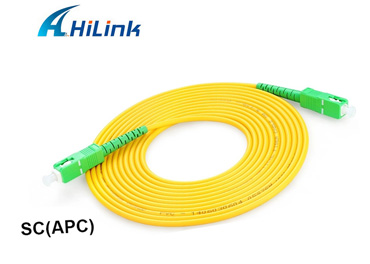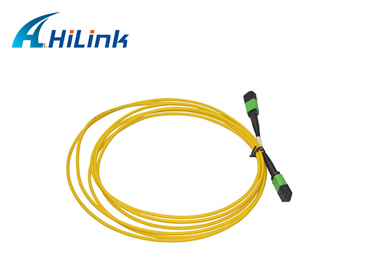How To Choose Right Fiber Patch Cord Types For Your Network?
May. 24, 2022
There are many fiber patch cord types, such as OM1, OM2, OM3, OM4 multimode fiber, and OS2 single-mode fiber types. Both ends of the cable are terminated with a high-performance hybrid or single type connector comprising of an SC, ST, FC, LC, MTRJ, and E2000 connector in simplex and duplex. These are typically not ruggedized, depending on the application, making them suitable for internal use. How to choose the right fiber patch cord types for your network? Just follow these 6 steps.
Step 1: Choose the Right Connector Type (LC/SC/ST/FC/MPO/MTP)
On both ends of the fiber optic patch, the cord is terminated with a fiber optic connector (LC/SC/ST/FC/MPO/MTP). A different connector is used to plug into a different device. If ports in both ends of devices are the same, we can use such LC-LC/SC-SC/MPO-MPO patch cables. If you want to connect different port type devices, LC-SC/LC-ST/LC-FC patch cables may suit you.
Fiber MPO- LC Patch Cords
Step 2: Choose Single-mode or Multimode Cable Type?
Single-mode fiber patch cord uses 9/125um glass fiber, Multimode fiber patch cord uses 50/125um or 62.5/125um glass fiber. Single-mode fiber optic patch cord is used in long-distance data transmission. multimode fiber optic patch cord is used in short-distance transmission. Typical single-mode fiber optic patch cords used yellow fiber cable and multimode fiber optic patch cords used orange or aqua fiber cable.
Step 3: Fiber Patch Cord Types – Choose Simplex or Duplex?
Simplex means this fiber patch cable is with one cord, at each end is only one fiber connector, which is used for Bidirectional (BIDI) fiber optic transceivers. Duplex can be regarded as two fiber patch cables put side by side, which is used for common transceivers.
SC FC Connectors Patch Cords
Step 4: Choose the Right Cable Length (1m/5m/10m/20m/30m/50m)
Fiber optic patch cables are made in different lengths, usually from 0.5m to 50m. You should choose an appropriate cable length according to the distance between the devices you want to connect.
Step 5: Choose the Right Connector Polish Type (UPC/APC)
Since the loss of the APC connector is lower than UPC connectors, usually, the optical performance of APC connectors is better than UPC connectors. In the current market, the APC connectors are widely used in applications such as FTTx, a passive optical network (PON), and wavelength-division multiplexing (WDM) that are more sensitive to return loss.
But APC connector is usually more expensive than a UPC connector, so you should weigh the pros and cons. With those applications that call for high precision optical fiber signaling, APC should be the first consideration, but less sensitive digital systems will perform equally well using UPC. Usually, the connector color of the APC patch cable is green, and of the UPC patch cable is blue.
MTP/MPO Patch Cord Cables
Step6: Choose the Right Cable Jacket Type (PVC/LSZH/OFNP/Armored)
Usually, there are three cable jacket types: Polyvinyl Chloride (PVC), Low Smoke Zero Halogen (LSZH), and Optical Fiber Nonconductive Plenum (OFNP).
Besides the three cables mentioned above, there is another common cable—Armored Cable. The double tubing and steel sleeve construction make these patch cables completely light-tight, even when bent. These cables can withstand high crushing pressures, making them suitable for running along with floors and other areas where they may be stepped on. The tubing also provides excellent cutting resistance, abrasion resistance, and high tensile strength.















